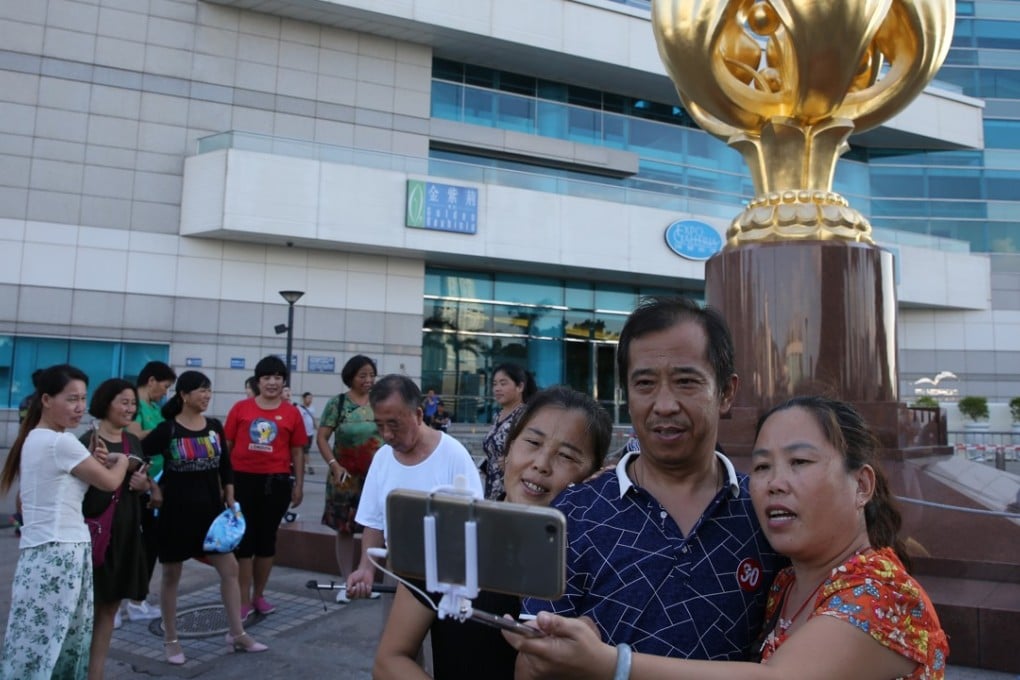Political rancour and handover events boost Hong Kong’s ‘golden week’ visitor numbers
Mainland visitor numbers – so key to the city’s tourism performance – up on last year’s festive period, but some younger visitors may not stay long

More mainlanders are spending their National Day holidays in Hong Kong this year, fuelled by recent political tension between Beijing and neighbouring countries, and celebrations to mark the 20th anniversary of the city’s handover to China.
But that does not mean they are staying long. Some younger tourists plan to fly elsewhere, to places like Taiwan and Southeast Asia, after just a day or two in the city.
Rather than shopping and visiting renowned attractions, some millennial travellers say they would rather spend their time on the city’s outlying islands, or in its country parks.
This year mainlanders have an extended eight-day break starting from Sunday, as the National Day public holiday coincides with the Mid-Autumn Festival. The period is known as “golden week”.
“We saw a big improvement [in hotel bookings] from last year,” Michael Li Hong-shing, executive director of the Federation of Hong Kong Hotel Owners, said.
City hotels’ overall occupancy for the first four days of the holiday reached more than 90 per cent, having hovered around 80 per cent for recent holidays.